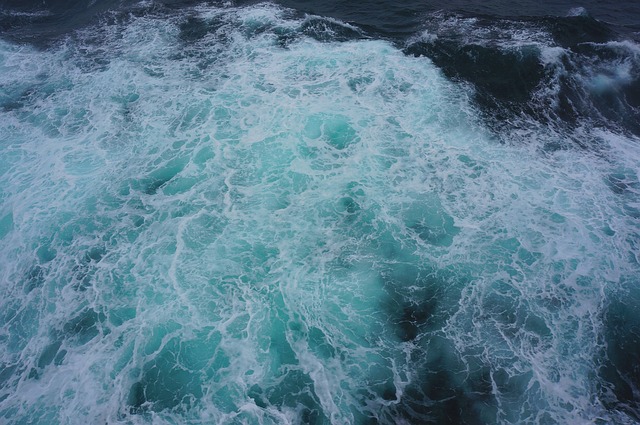The issue of deep-sea mining has become a topic of intense debate in recent years, with proponents arguing that it could provide a much-needed boost to the global economy while opponents raise concerns about the potential negative impact on the environment and climate change. Deep-sea mining refers to the extraction of minerals from the ocean floor, which holds substantial reserves of valuable resources such as copper, gold, and rare earth metals. However, the process of deep-sea mining is not without its risks and drawbacks, particularly in relation to climate change.
One of the main concerns surrounding deep-sea mining is the potential release of large amounts of carbon dioxide (CO2) into the atmosphere. The mining process involves the use of heavy machinery, which requires a significant amount of energy, usually derived from fossil fuels. This energy consumption contributes to greenhouse gas emissions, which are one of the main drivers of climate change. Furthermore, the extraction and transportation of minerals from the ocean floor to the surface can also lead to carbon emissions, as it involves burning additional fossil fuels.
Another environmental concern associated with deep-sea mining is the disruption of marine ecosystems. The ocean floor is home to a diverse array of organisms, many of which are still poorly understood. The use of heavy machinery and the disturbance caused by mining activities can result in physical damage to critical habitats and the organisms living in them. This disruption can have long-lasting and potentially irreversible effects on marine biodiversity, which is already under considerable stress due to various other human activities, including overfishing and pollution.
Moreover, the extraction of minerals from the ocean floor can have broader implications for climate change mitigation efforts. Many of the metals and minerals targeted for deep-sea mining are essential for the production of renewable energy technologies, such as solar panels and wind turbines. However, the carbon footprint associated with deep-sea mining operations may offset the potential environmental benefits of deploying these renewable energy systems. It is crucial to carefully consider the lifecycle analysis of deep-sea mining and its carbon emissions, taking into account not just the extraction phase but also the processing, transportation, and disposal of the extracted minerals.
On the other hand, proponents of deep-sea mining argue that it could provide a viable alternative to land-based mining operations, which often come with their own set of environmental challenges. For instance, terrestrial mining activities can lead to deforestation, water pollution, and the displacement of local communities. By extracting minerals from the ocean floor, deep-sea mining proponents argue that these negative impacts could be minimized or avoided altogether. Moreover, they highlight the potential economic benefits of deep-sea mining, including job creation and increased revenue for countries with deep-sea mining operations.
Nevertheless, it is important to approach deep-sea mining with caution and take into account the potential risks and uncertainties associated with the process. Currently, there are no established regulations or international frameworks in place to govern deep-sea mining operations. This lack of oversight raises concerns about the potential for exploitation and environmental damage, as well as the need for comprehensive environmental impact assessments before any mining activities begin. It is crucial to develop robust regulations that prioritize environmental sustainability, including the mitigation of carbon emissions and the protection of marine ecosystems, while also considering the potential economic benefits.
In conclusion, the question of whether deep-sea mining is good or bad for climate change is complex and multifaceted. While it could offer economic opportunities and an alternative to land-based mining, the potential environmental risks and uncertainties associated with deep-sea mining cannot be ignored. To avoid exacerbating climate change and causing irreparable damage to marine ecosystems, it is crucial to approach deep-sea mining with caution and prioritize environmental sustainability through the development of robust regulations and thorough environmental impact assessments.
